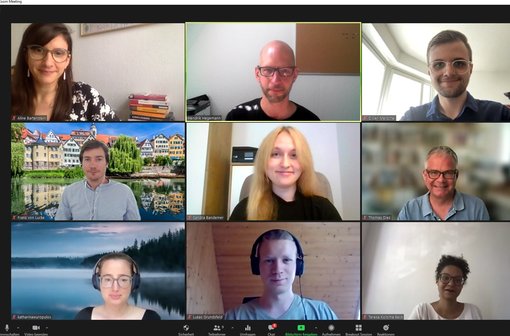Watch Foreign Minister Heiko Maas’ complete speech here (German).
The red carpet, a flurry of flashing cameras: It was a big day for the Institute for Peace Research and Security Policy. Hamburg’s mayor, Dr. Peter Tschentscher, had arranged for a Senate reception in honour of the IFSH, and the largest ballroom in Hamburg’s city hall had been prepared. Why? Because the Foreign Federal Office has awarded the institute funding for a multi-million euro project. Going forward, IFSH researchers will specifically study new security policy risks and their containment via arms control and disarmament. A ceremony at the Hamburg city hall in the presence of Foreign Minister Heiko Maas marked the project’s official start.
“We want arms control to be higher on the agenda,” said the minister in his official speech. “To that end, we are increasing support for research in this field and are supporting the IFSH with one million euros per year.” The funding is also meant to contribute to the IFSH becoming a leading institution for arms control research in Europe and beyond, Maas explained. He continued that, particularly in long and drawn-out processes such as arms control, advisory research institutions are indispensable. They serve as advisers, critics and intellectual sparring partners in diplomatic and military matters, Maas said.
At the mayor’s invitation, around 150 guests from the political community, academic community and Hamburg society converged on the Hamburg city hall. In her speech, IFSH director Professor Dr. Ursula Schröder pointed out that, especially in the era of fake news, facts-based knowledge and the expertise of experienced researchers are essential.
Following the speeches, there was a panel discussion moderated by Georg Mascolo, head of the NDR, WDR and Süddeutsche Zeitung research association. Niels Annen, Minister of State at the Foreign Federal Office, Angela Kane, former UN High Representative for Disarmament Affairs, and Professor Dr. Götz Neuneck of the IFSH discussed current challenges in arms control.





